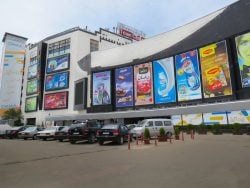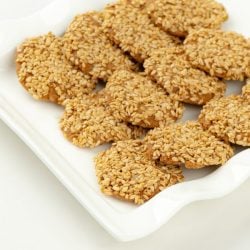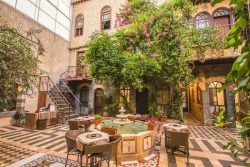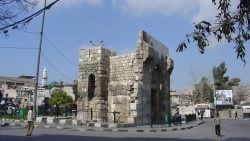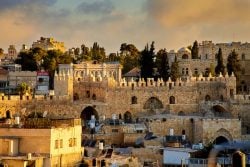The Damascene Dialect: Words And Expressions From Damascus
The Damascene dialect is one of the most widely recognized in the Arab world, largely due to the popularity of Syrian TV series, many of which are in this dialect. However, there are still some unique words from the lexicon of the people of Damascus—some of which have disappeared, while others are still in use today.

Words for expressing affection in Damascene Dialect:
To’berni: Literally means “bury me,” expressing the wish to die before the loved one. It’s a deeply affectionate term, similar to “tushkel asi,” meaning “place the myrtle on my grave,” which also conveys deep love.
Wel sab’a tnaam: This means “it’s an honor,” or “we’re honored,” and is a way of expressing respect and admiration.
Bri ‘alek: Equivalent to “bravo” or “well done.”
Zakatek: Means “please” or “if you may.”
Yislamo: A casual way to say “thank you.”
Hadarti wa ma heder wajibek: Meaning “no matter what we do, we can’t repay you.”
Azizeh min ghayr qiyām: A polite way of saying, “No need to stand up.”
Words to Express Anger in Damascene Dialect:
Walak: A term often used in reprimands or insults.
W darab al-sakhen: An insult that translates to “may you get a fever.”
Yinmehe’: Meaning “let him suffer,” or “he deserves it.”
Issta’fil: A phrase meaning “let him be” or “leave him to his own fate.”
A’od ya’od rizak: A phrase telling someone to “sit down and stop moving around,” with a darker undertone of “die and let people eat rice at your funeral”.
W rassas: A grim phrase meaning “a bullet” or a death wish.
Dijni dijtak al-‘afiyeh: A blunt way of saying, “Being overly straightforward that is it rude.”
Yoh lwah lwah: A well-known expression among women, used to tease or mock.
Fretelna hal-masbaha: A phrase meaning “solve the problem.”
Mna’ara: Means “an argument” or “a fight.”
Aay: Refers to “trouble” or “problems.”
Verbs
Dashro: Means “Leave him alone” or “Let him be.”
Leek : A casual way to say “Look!” or “See!”
Kawkesho, Fattesh, Bhabesh: All mean the same thing: to search thoroughly.
Tkrakab : Means to get flustered or confused.
Descriptive Words in Damascene Dialect:
Aaj’a: Refers to a crowd or congestion.
Mani ghodran: Means “I can’t” or “I’m unable.”
Serri merri: Used for someone who’s always in and out of the house.
Sharwi gharwi, Shendi bendi, ‘Alaq msaddi: All describe someone who talks nonsense.
M’anshah: Describes someone who is unkempt or dirty in appearance.
Shatet w maṭet: Refers to someone who is overly spoiled.
Nayet: Means someone who is very slow or dull.
Msarsabeh: Describes someone who is a compulsive cleaner.
Az’ar : Refers to a troublemaker or a rowdy person.
Zkert or Abadai: Describes someone who is strong and courageous.
A’alo jozatayn bikhrij: Literally means “His brain is like two nuts in a large bag,” referring to someone who’s not very smart.
Msha’it: Means “beside” or “next to.”
Aamnawel: Refers to last year.
Awal Aamnaowel: Means “the year before last,” or two years ago.
Awlad Ado : Refers to “bad company” or “troublemakers.”
Tamm gham: Describes someone who shows up unannounced.
Metel El makouk l hayek: Refers to someone who is constantly pacing around.
Mjanet: Means broke or penniless.
Kehitteh: Refers to someone who’s stingy.
Naayan: Describes someone who’s slow or indifferent.
Masarbeh: Describes someone who is obsessed with cleanliness.
Msemmewieh: Describes someone who’s spiteful and mean-spirited.
Mwasswas: Describes someone obsessed with something.
Hadd wish deif: Used to describe someone who hasn’t been seen again.
Hamshari : Refers to someone who is chaotic or disruptive.
Allesh: Means to get used to something.
Khlanj: Means unused or brand new.
Mrahrha: Refers to something that’s roomy or spacious.
Names of Things
Dakouna: The room under the stairs
Namliyyeh : A cupboard or pantry in the kitchen
Sofayeh: means sofa or couch
Ta’iyeh: Refers to a hat or cap.
Draa: A measurement unit (equivalent to an arm’s length).
S’a’: Street
Kakoubeh: Unnecessary item, junk
Ejazeh: Glass
Kharrateti : my skirt
Kamsheh : a handful
Kawsheh : a group
Emaa: Ice Cream
